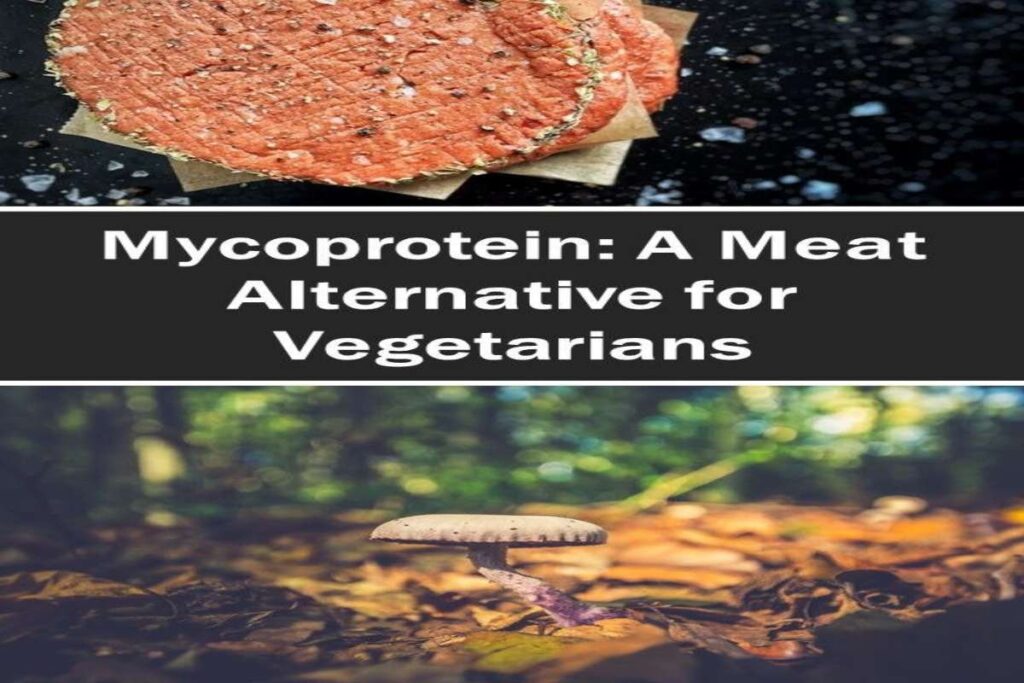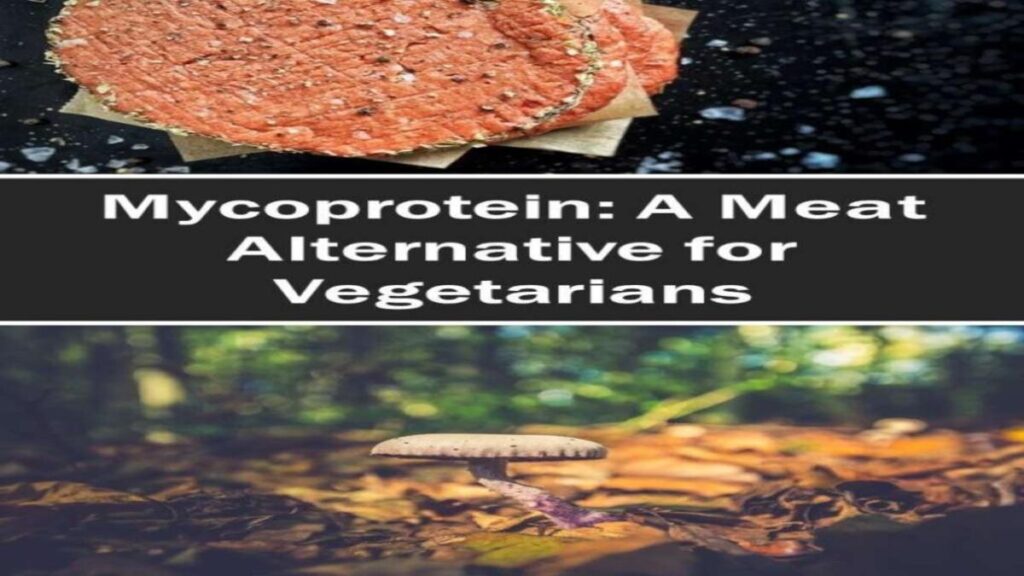Dieting plays a crucial role in staying healthy because it helps control or regulate one’s food intake to achieve a specific goal, such as weight loss, improved health, or managing certain medical conditions. Protein intake is a deciding factor when it comes to healthy eating.

Dieting usually involves making conscious choices about what and how much you eat. It’s essential to approach dieting healthily, focus on nutritious foods, and listen to your body’s needs.
Of all the six food classes, protein is often part of a well-balanced diet and can come in various forms. Research suggests that, on average, animal-based foods like meat, eggs, and dairy products can provide about 70-80% of the protein in a typical diet.
Understanding Mycoprotein
It is general knowledge that eating meat or fish can cause an increase in cholesterol levels, especially if you consume them in large amounts or choose high-fat cuts. It’s crucial to balance your intake and opt for leaner cuts of meat and fish.
ALSO READ: Study Reveals Mediterranean Diet and Exercise Improves Gut Health, Leads to Weight Loss
Researchers have recently developed a possible alternative to meat consumption that can help reduce cholesterol levels in the human body: mycoprotein. Mycoprotein is a protein made from fungi that’s often used as a meat substitute. It’s pretty cool how they can turn mushrooms into a protein-packed food.

A study published in Clinical Nutrition compared eating mycoprotein or fungal protein products with eating fish and meat over four weeks. The results indicated that the group that ate mycoprotein experienced up to a 10% drop in certain cholesterol levels.
Some popular mycoprotein products that you might be familiar with are Quorn and Beyond Meat. They offer meatless options like burgers, sausages, and nuggets made from mycoprotein. MycoproIt’sein is an excellent choice for those looking to incorporate more plant-based protein into their diet. It also contains high amounts of fiber.
The study’s researchers are interested in knowing how the consumption of mycoprotein instead of fish or meat influenced or aided cholesterol levels, specifically in overweight people with elevated cholesterol levels. They noted that these individuals were more at risk for cardiovascular disease.
What Is Cholesterol?
Cholesterol is a fatty substance that our bodies need in small amounts. It’s found in certain foods like meat and dairy, but our bodies can also make it. There are two types of cholesterol: Low-Density Lipoprotein (the “bad” one) and High-Density Lipoprotein (the “good” one).

Too much LDL cholesterol can build up in our arteries and increase the risk of heart disease. So, monitoring our cholesterol levels and making healthy choices is essential. A study suggests that eating mycoprotein can help keep our cholesterol in check.
POLL—Should the Government Increase Taxes on the Wealthy To Reduce Economic Inequality?
Research on Mycoprotein and Cholesterol
A study proved how mycoprotein can help cholesterol control through a randomized controlled trial. It gathered participants who were adults between the ages of 18 and 70. All participants had a body mass index of 27.5 or higher, which indicates being overweight.

The researchers assumed that these criteria would ensure the participants had elevated cholesterol. Participants who had an allergy to penicillin or mycoprotein or were already using cholesterol-lowering medication were excluded from the research.
This experiment included 72 participants, who were divided into two categories. One group received meat and fish products; the other received mycoprotein products. Researchers sent a particular amount based on participants’ weight. Each week, the researchers conducted 24-hour dietary recalls with all participants.
Dr. George Pavis’s View on Mycoprotein
According to study author George Pavis, Ph. D., there is a vital change in cholesterol levels for participants in the mycoprotein group. “We have known for a while that eating mycoprotein, the main ingredient in Quorn products, has the potential to lower Cholesterol,” Pavis told Medic News Today.

“Up until now, this has relied on studies conducted under strict laboratory conditions, so we didn’t know if this would work in ‘real life’ settings.” He continued, “In our new work, we have ventured away from the laboratory and into the community.”
“We show that when participants are provided with Quorn products to eat at home for four weeks, their levels of ‘total’ and ‘bad’ cholesterol drop by 5-10%,” he further stated. “This is a promising decline over such a short amount of time. We now need to look at what happens if we extend this time, perhaps to 3 or 6 months.”
WATCH: Catholic High School Set to Pay $1 Million to White Students It Expelled for “Blackface”
Can Mycoprotein Be Trusted as a Source of Protein for Cholesterol Reduction?
This study provides health benefits of taking mycoprotein, including its potential to decrease the risk of cardiovascular disease. However, this research does have certain limitations. First, it only lasted a short time and included just a few participants.

It also doesn’t establish a causal relationship between any of the factors. Future research may focus on mycoprotein’s benefits and whether it will have any adverse long-term consequences. People who want to switch to eating less meat and more mycoprotein can consult doctors or nutritionists for guidance.
You Might Also Like:
Judge Cannon Denies Trump Adviser Stephen Miller’s Request
Study Shows Nearly 50% of Electric Vehicle Owners Regret Making the Switch From Gas Cars
Poll in Two Critical Swing States Shows Trump a Positive Sign
Barack Obama Reveals Wife Michelle Urged Daughters Malia and Sasha Against Political Career
Dermatologists Reveal the Benefits and side effects of using retinol and retinoids

